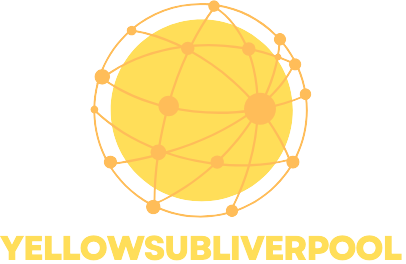Table of Contents
ToggleThe blockchain revolution is transforming the way industries operate and individuals interact. This groundbreaking technology, originally designed for cryptocurrency, has evolved into a powerful tool that enhances transparency, security, and efficiency across various sectors. From finance to healthcare and supply chain management, blockchain’s decentralized nature is reshaping traditional practices and creating new opportunities.
As organizations increasingly recognize the potential of blockchain, they’re finding innovative ways to leverage its capabilities. Smart contracts, digital identities, and immutable records are just a few examples of how this technology is streamlining processes and reducing fraud. The ripple effects of the blockchain revolution are far-reaching, promising to redefine trust and collaboration in the digital age.
Overview Of Blockchain Revolution
Blockchain technology represents a paradigm shift in how data is stored, secured, and shared. Initially designed for cryptocurrency transactions, its decentralized nature enhances the integrity of data across multiple sectors.
Key Features
- Transparency: All transactions are visible and verifiable by participants, fostering accountability.
- Security: Cryptographic techniques protect data, making unauthorized access or alterations virtually impossible.
- Efficiency: Automation through smart contracts reduces the need for intermediaries, streamlining processes and lowering costs.
Industry Applications
- Finance: Financial institutions employ blockchain to facilitate secure and instant transactions, minimizing fraud risks.
- Healthcare: Medical records stored on blockchain ensure privacy while allowing secure sharing among authorized professionals.
- Supply Chain: Companies track products from production to delivery, enhancing traceability and trust among stakeholders.
Innovations
Innovative applications like digital identities and immutable records signify a robust future for blockchain technology. Digital identities increase user control over personal information, while immutable records bolster trust in essential transactions.
The blockchain revolution is reshaping interactions and redefining trust in the digital economy, prompting organizations to explore its vast potential for long-term benefits.
Key Features Of Blockchain Technology

Blockchain technology features several core attributes that enhance its effectiveness and appeal across industries.
Decentralization
Decentralization distributes control among numerous independent nodes rather than relying on a singular authority. This structure enhances data integrity, as no single entity can manipulate the data without consensus. Decentralized networks prevent single points of failure, improving resilience against attacks. Furthermore, this feature fosters trust among users, as the system operates transparently and equitably, allowing participants to verify transactions independently.
Transparency And Security
Blockchain’s transparency ensures that all transactions are visible and verifiable by participants in the network. Each transaction records in a public ledger, promoting accountability and enabling real-time auditing. Security derives from cryptographic techniques that safeguard data against unauthorized access and manipulation. As a result, blockchain effectively prevents fraud and enhances user confidence, making it appealing for various applications such as finance, healthcare, and supply chain management.
Impact On Various Industries
Blockchain technology significantly reshapes various industries by enhancing security, efficiency, and transparency. Its decentralized structure and unique features create innovative solutions across finance, supply chain management, and healthcare.
Finance And Banking
Blockchain transforms finance and banking by enabling secure and instantaneous transactions. Financial institutions utilize distributed ledgers to streamline processes, reduce transaction costs, and mitigate fraud risks. For example, cross-border payments benefit from blockchain’s efficiency, processing in minutes instead of days. Institutions like JPMorgan Chase and Goldman Sachs actively explore blockchain solutions for internal systems, enhancing customer experience and operational efficiency. Furthermore, decentralized finance (DeFi) platforms leverage blockchain to provide users with financial services without intermediaries, allowing greater access and reducing reliance on traditional banking systems.
Supply Chain Management
In supply chain management, blockchain enhances product traceability and transparency. Companies implement blockchain to track goods from production to delivery, improving accountability. For instance, Walmart employs blockchain technology to trace food products, identifying sources of contamination swiftly and ensuring food safety. Transparency in supply chains enables organizations to verify the authenticity of products, combat counterfeiting, and build trust with consumers. Additionally, manufacturers utilize smart contracts to automate transactions, thereby reducing the risk of delays and disputes among parties involved in the supply chain.
Healthcare
Healthcare benefits from blockchain by ensuring data security and privacy while improving interoperability among systems. Providers can securely share medical records with patients and authorized personnel, enhancing care coordination. For instance, Estonia’s e-Health Foundation uses blockchain to grant patients control over access to their health data. Furthermore, blockchain aids in tracking pharmaceuticals throughout the supply chain, reducing counterfeit drugs and ensuring patient safety. By implementing blockchain solutions, healthcare entities can streamline administrative processes, minimize errors, and maintain compliance with regulations, ultimately enhancing patient trust and care quality.
Challenges And Limitations
Blockchain technology faces several challenges that impact its widespread adoption. Key issues include scalability limitations and regulatory concerns, which can hinder the technology’s potential.
Scalability Issues
Scalability presents a significant hurdle for blockchain networks. As the number of users and transactions increases, processing speed can slow. For instance, Bitcoin handles approximately 7 transactions per second (TPS), whereas Visa can process around 24,000 TPS. High transaction fees during peak times can also arise, discouraging users from utilizing blockchain for high-volume transactions. Solutions like sharding and layer-two scaling aim to address these issues but remain in developmental stages, creating uncertainty around their effectiveness and implementation.
Regulatory Concerns
Regulatory challenges pose another obstacle for blockchain adoption. Governments worldwide have yet to establish clear frameworks to govern blockchain and cryptocurrency use. Uncertainty surrounding legal compliance can deter businesses from fully integrating blockchain solutions. Concerns about anti-money laundering (AML) and know-your-customer (KYC) regulations require strict adherence, complicating onboarding processes for users. Additionally, varying regulatory stances across countries create a fragmented global market, complicating cross-border transactions and implementations.
Future Perspectives
Blockchain technology continues to evolve, promising significant advancements and applications in various sectors. The following sections explore emerging innovations and potential use cases.
Innovations On The Horizon
Innovations in blockchain technology focus on improving scalability, interoperability, and user experience. Projects like Ethereum 2.0 aim to tackle scalability through a proof-of-stake mechanism, which enhances transaction throughput. Additionally, advancements in cross-chain solutions allow different blockchains to communicate, creating a seamless ecosystem. Layer-two protocols, such as the Lightning Network, enable faster transactions and reduced fees on existing blockchains. These innovations collectively enhance blockchain’s efficiency and broaden its applicability.
Potential Use Cases
The potential use cases for blockchain technology are extensive and diverse, impacting numerous sectors.
- Finance: Decentralized finance (DeFi) offers alternatives to traditional banking by providing lending, borrowing, and trading without intermediaries, enabling users to manage their assets directly.
- Healthcare: Blockchain enables secure electronic health records (EHR), where patients control access to their data, improving privacy and streamlining information sharing among providers.
- Supply Chain: Blockchain enhances transparency by allowing consumers to trace product origins and ensure quality, as exemplified by major retailers tracking food sources.
- Real Estate: Smart contracts can automate property transactions, reducing paperwork and closing times, while providing a transparent ledger of ownership.
- Voting Systems: Blockchain can secure votes, ensure anonymity, and enhance trust in electoral processes through immutable records.
These applications illustrate how blockchain is positioned to reshape various industries and drive transformative change in established practices.
The blockchain revolution is undeniably reshaping the landscape of multiple industries. Its ability to enhance transparency security and efficiency is attracting organizations eager to harness its potential. As blockchain technology continues to evolve it promises to redefine trust and interactions in the digital economy.
While challenges like scalability and regulatory hurdles remain significant the ongoing innovations and projects aim to address these issues. The future looks promising with advancements that could expand blockchain’s applications across finance healthcare supply chains and beyond.
Ultimately embracing blockchain technology could lead to transformative changes that benefit both organizations and individuals alike. The journey has just begun and its impact will likely be felt for years to come.







